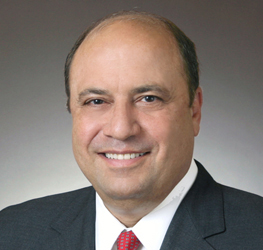State Budget and Taxation: Florida House and Senate Budget Proposals Differ by $600 Million
On April 2, 2009, the Florida House and Senate leadership released significantly different budget proposals for the 2009 – 2010 state fiscal year. The Senate plan would spend approximately $600 million more than the House proposal and would rely on Seminole Indian gaming revenues that the House does not include.
The proposals will be considered in committee during the week of April 6, 2009 and will be taken up by the full House and Senate during the following week.
The Senate would spend approximately $65.6 billion, reflecting a $100-million increase over the current 2008 – 2009 budget. The House is proposing a $65-billion budget that would reduce spending by $500 million.
Both chambers propose not to fund the Florida Forever environmental land buying program, which typically receives approximately $300 million a year. Both chambers cut nursing home spending, with the Senate cutting $12 million more than the House.
Some of the most dramatic differences are in education funding. According to House Majority Leader Adam Hasner (R-Delray Beach), the House budget protects funding for pre-K through 12 education, raising per-student funding to a statewide average of $6,891 and transferring funds that had been designated for capital expenditures so that school districts can use them for operating costs. Unlike the Senate, the House proposes significant cuts in higher education, including a 2.5 percent reduction for state and community colleges and a 4.5 percent reduction for state universities. Both chambers provide for a combination of mandatory and discretionary tuition increases totaling 15 percent.
The Senate budget could result in the layoffs of as many as 800 state employees, while the House budget concentrates on eliminating positions that are currently vacant. The House proposes salary cuts of five percent for state employees earning more than $80,000 a year and four percent for employees earning between $26,400 and $80,000 a year.
Although the Legislature is expected to enact increases in various fines and fees, the only major tax increase currently considered likely is an increase in tobacco taxes, including a $1-per-pack increase in the cigarette tax. On March 31, 2009, the Senate Committee on Finance and Tax passed the tax increases, which supporters estimated would generate revenues of $870 million a year. Proposals to eliminate several sales-tax exemptions appear to be stalled. Senate Finance and Tax Committee Chair Thad Altman (R-Melbourne) has announced that he is putting his plan to eliminate approximately $200 million in exemptions on hold. House Finance & Tax Council Chair Ellyn Bogdanoff (R-Fort Lauderdale) is currently supporting a plan to close some tax loopholes and use the additional revenue to reinstate sales-tax holidays for back-to-school and hurricane supply purchases.
Gaming: House Committee Passes Plan to Reduce Seminole Gaming While State Economists Reduce Revenue Projections for Senate Gaming Plan
On April 3, 2009, the House Select Committee on Seminole Indian Compact Review approved legislation that would limit gaming at casinos operated by the Seminole Tribe of Florida. The House plan would allow the operation of slot machines and some high-stakes poker tournaments at seven Seminole facilities, but would prohibit banked card games such as blackjack. The bill would provide for revenue sharing at the rate of 18 percent of the net win, with a $100 million a year minimum payment to the state.
The House proposal contrasts with a Senate plan that allows the tribe to operate the full range of casino games and expands gaming at pari-mutuel facilities.
Although proponents of the Senate plan had estimated that the expansion of gaming would produce more than $1 billion a year in new state revenue, a report from the Legislature’s Office of Economic & Demographic Research, released on March 31, 2009, projected a much smaller revenue increase. The state economists project that expanded gaming would produce revenues of $535 million a year but, according to Amy Baker, director of the division, “very little of this would come online” during the 2009 – 2010 state fiscal year.
Environment: Governor Charlie Crist Scales Back Proposed Purchase of Everglades Land from U.S. Sugar Corporation
On April 1, 2009, Gov. Crist announced a revised plan to purchase Everglades land from the U.S. Sugar Corporation. The original plan, announced in June 2008, was for the state to buy out the entire corporation’s land for $1.75 billion. Five months later, this plan was replaced by the proposed purchase of more than 180,000 acres for $1.34 billion. Responding to changing economic circumstances, the governor is now proposing that the South Florida Water Management District acquire 72,500 acres for $533 million. The proposal also would include an option for the state to acquire more land from the company over the next 10 years.
Gov. Crist stated that the scaled-down plan would reduce the tax impact of the land deal and save 1,700 jobs while still making an important contribution to Everglades restoration.
The new plan is contingent on approval by the board of directors of U.S. Sugar Corp. and the governing board of the water management district.
Property Insurance: Proposals to Allow Premium Increases for Homeowners Insurance Begin Moving Through Legislature
House and Senate committees are considering legislation to address financial shortfalls in two state-created property insurance entities, Citizens Property Insurance Corporation (Citizens), which has become the largest provider of homeowners insurance policies in the state, and the Florida Hurricane Catastrophe Fund (Fund), which provides up to $29 billion in hurricane reinsurance for Citizens and for private sector residential property insurers. Both entities are heavily dependent on their ability to borrow in order to pay claims.
Citizens’ rates, which are currently frozen at 2006 levels, would require increases of 40 to 55 percent to reach actuarial soundness, according to legislative testimony from the insurer’s staff. The Fund has reported that because of the currently constrained credit markets, it is able to honor only $10.6 billion of its obligations, leaving a shortfall of $18.4 billion.
Legislation moving through the Senate Committee on Banking and Insurance and the House Insurance, Business & Financial Affairs Policy Committee would gradually reduce the Fund’s obligations to bring them more in line with the Fund’s ability to incur debt and would allow Citizens to raise its rates by a statewide average of up to 10 percent a year until its rates are actuarially sound.
Both Gov. Crist and Senate President Jeff Atwater (R-North Palm Beach) have stated that the “glide path” for Citizens’ rates would allow rates to rise too quickly. The current House version would allow increases of up to 20 percent for any individual policyholder, within the 10 percent statewide average cap. The current Senate version caps increases to any policyholder at 10 percent. Both versions also would allow rates to rise to reflect changes in Fund costs.
The Senate version was heard by the Committee on Banking and Insurance on April 1, 2009, but the committee deferred action on the bill after several senators expressed concerns about rate increases. The House version was approved by the Insurance, Business & Financial Affairs Policy Committee on April 3, 2009.
Public Affairs News Alert is part of our ongoing commitment to providing up-to-the-minute information about pressing concerns or industry issues affecting our clients and our colleagues. If you have any questions about this alert or would like to discuss these topics further, please contact your Foley attorney or any of the following individuals:
|
Marnie George Michael P. Harrell Robert H. Hosay |
Jonathan P. Kilman Thomas J. Maida Leonard E. Schulte |

